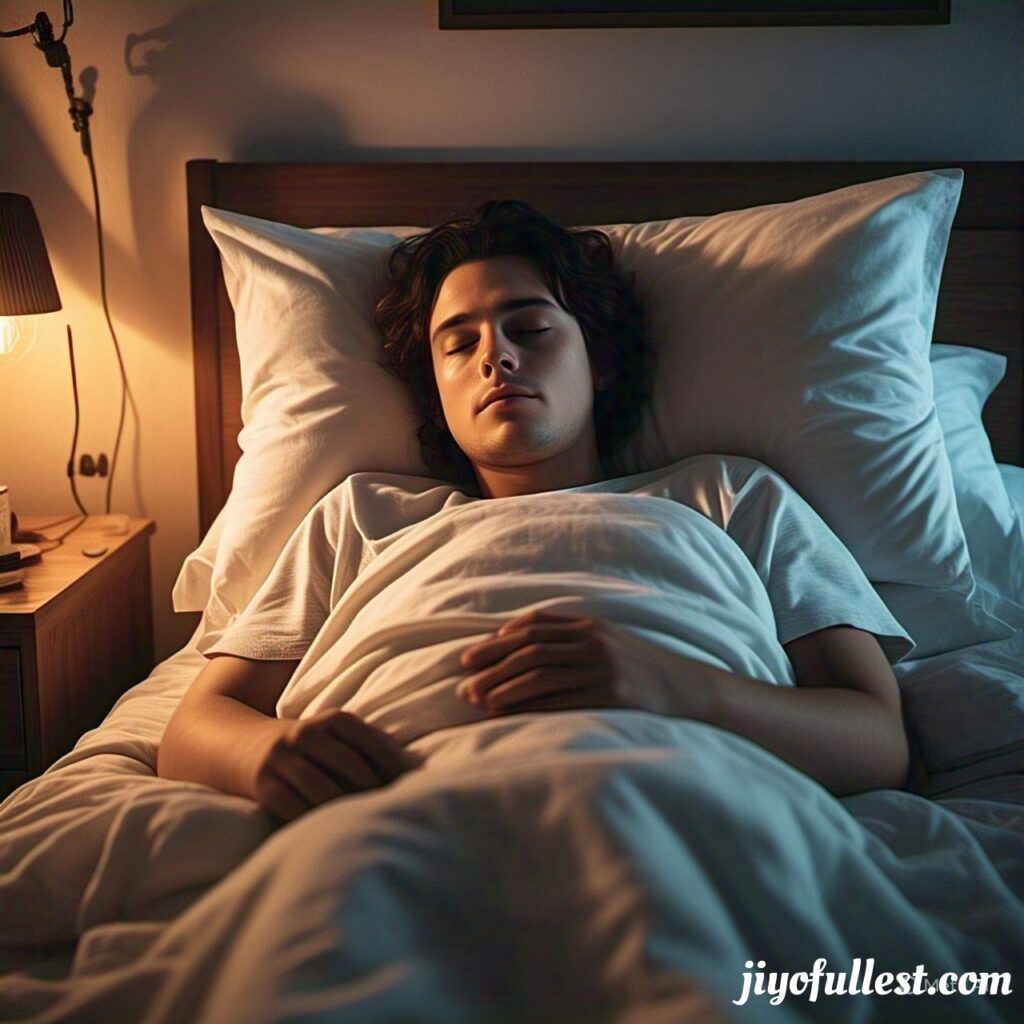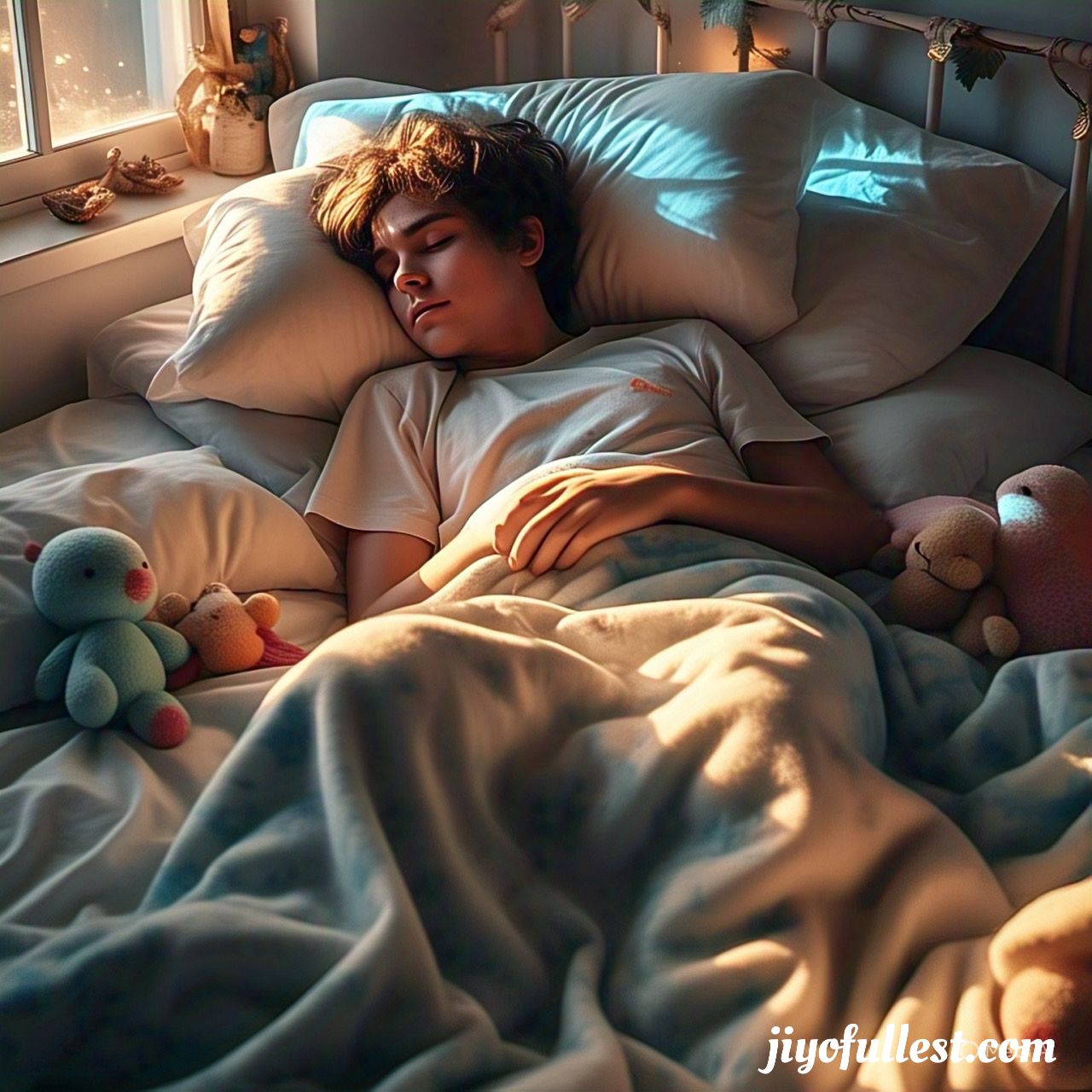Have you ever woken up from a dream so intense and lifelike that it felt more like a memory than a creation of your imagination? Vivid dreams can be fascinating, confusing, or even unsettling. But why do we experience them? What makes some dreams more detailed or emotionally charged than others?
In this blog post, we’ll explore the science and psychology behind vivid dreams, the possible causes, what they might mean, and when you might want to seek professional advice. We’ll also answer some frequently asked questions at the end.
Table of Contents
ToggleWhat Are Vivid Dreams?
Vivid dreams are dreams that are exceptionally detailed, intense, and easy to remember. They often involve strong visuals, emotions, or even physical sensations. Unlike vague or fleeting dreams, vivid dreams stick with you, sometimes lingering long after you wake up.
Vivid dreams can be pleasant, like flying over a beautiful landscape, or disturbing, like running from an unseen threat. Either way, they often feel very real

Why Do I Have Vivid Dreams Every Night?
Frequent vivid dreams usually stem from sleep disruptions, brain activity patterns, or lifestyle factors:
REM Sleep Interruptions:
Waking up during REM sleep (when vivid dreams occur) makes them easier to recall. Causes include stress, noise, sleep apnea, or erratic schedules.
Neurochemical Shifts:
Medications (antidepressants, blood pressure drugs), supplements (melatonin, B6), or substance withdrawal alter neurotransmitters like serotonin and dopamine, boosting dream intensity.
Sleep Disorders:
Narcolepsy, PTSD, or REM Sleep Behavior Disorder (RBD) heighten dream vividness.
Lifestyle Triggers:
Late-night eating, alcohol, stress, or screen time before bed.
Fix It: Improve sleep hygiene, manage stress, and avoid stimulants/alcohol before bed.
Common Causes of Vivid Dreams
1. REM Sleep and Dream Intensity
Dreaming mostly occurs during the Rapid Eye Movement (REM) phase of sleep. This stage is marked by increased brain activity, which is similar to our waking state. The longer or more frequently you enter REM sleep, the more vivid your dreams might become.
Sometimes, people wake up during or right after REM sleep, making the dreams more likely to be remembered.
2. Stress and Anxiety
Emotional states heavily influence our dreams. If you’re dealing with stress, anxiety, or unresolved emotions, your brain may process these feelings through vivid dreams.
Stressful dreams can involve themes of being chased, falling, or losing control—mirroring real-life feelings of anxiety.
3. Medications
Certain medications can lead to more vivid dreams. These include:
Antidepressants (especially SSRIs)
Blood pressure medications
Sleep aids
Parkinson’s disease drugs
These drugs can affect brain chemicals like serotonin and dopamine, altering your sleep cycle and dream activity.
4. Sleep Disorders
Conditions like insomnia, narcolepsy, and sleep apnea can interrupt your normal sleep cycles, leading to fragmented or enhanced REM sleep—and with it, more vivid dreams.
5. Substance Use and Withdrawal
Using or withdrawing from substances such as alcohol, nicotine, or recreational drugs can affect the brain’s chemistry and sleep quality. As your brain adjusts, dreams may become more intense or emotionally charged.
6. Pregnancy and Hormonal Changes
Hormonal fluctuations during pregnancy, menstruation, or menopause can affect sleep quality and emotional processing, which may trigger vivid or strange dreams.
7. Trauma and PTSD
People who have experienced trauma may have vivid dreams or nightmares as part of post-traumatic stress disorder (PTSD). These dreams often replay the traumatic event or reflect associated emotions like fear, helplessness, or anger.
8. Creative or Imaginative Minds
People with vivid imaginations or strong visual thinking skills may naturally have more vivid dreams. Creative individuals often report intense dream activity filled with symbolism or rich imagery.
Why Do I Dream Too Much and Wake Up Tired?
I Dream Too Much and Wake Up Tired
Excessive dreaming that leaves you exhausted often signals poor sleep quality:
REM Rebound:
After sleep deprivation, stress, or quitting alcohol/drugs, your brain overcompensates with extra REM sleep (and vivid dreams), disrupting deep restorative sleep.
Fragmented Sleep:
Frequent awakenings within dreams prevent deep sleep cycles, causing fatigue. Linked to anxiety, sleep apnea, or chronic pain.
Emotional Drain:
Intense dreams increase heart rate and cortisol, mimicking real stress.
Solutions:
Consistent Schedule: Stabilize your sleep-wake cycle.
Dark/Cool Room: Optimize sleep environment.
Wind-Down Routine: Meditation, reading, or breathwork 1 hour before bed.
Rule Out Disorders: Consult a doctor if you snore or gasp at night (sleep apnea).
What Are Vivid Dreams a Sign Of?
While often harmless, recurring vivid dreams can indicate underlying conditions:
| Category | Examples |
|---|---|
| Psychological | Stress, anxiety, PTSD, depression (dreams reflect emotional processing). |
| Physical Health | Pregnancy, fever, menopause, Parkinson’s, narcolepsy, or nutrient deficiencies (B6, magnesium). |
| Lifestyle | Alcohol withdrawal, medication side effects (SSRIs, beta-blockers), late meals. |
| Sleep Disorders | Sleep apnea, insomnia, REM Sleep Behavior Disorder (acting out dreams). |
| Neurological | Migraines, seizures, or brain inflammation (rare). |
When to Worry:
If dreams cause daytime fatigue, fear of sleeping, or violent behavior.
Sudden onset with other symptoms like headaches or mood swings.
Do Vivid Dreams Mean Anything?
Dream interpretation is subjective, but some psychologists believe that dreams—especially vivid ones—can offer insight into your subconscious mind. They may reflect:
Unresolved emotions
Hidden fears
Hopes and desires
Symbolic messages
For example, dreaming of flying might symbolize freedom or a desire to escape, while falling could indicate insecurity or loss of control.
However, not all vivid dreams have deep meaning. Sometimes they’re just the brain’s way of filing memories or reacting to stimuli.

How to Stop / Manage Vivid Dreams?
If vivid dreams are enjoyable or harmless, you don’t need to do anything. But if they’re disturbing your sleep or causing anxiety, try these strategies:
1. Improve Sleep Hygiene
Stick to a regular sleep schedule.
Avoid caffeine or heavy meals before bed.
Create a calm sleep environment.
2. Manage Stress
Try relaxation techniques like meditation, journaling, or deep breathing before bed.
Practice mindfulness to reduce daytime anxiety.
3. Limit Screen Time Before Bed
Blue light from screens can interfere with melatonin production and your natural sleep-wake cycle.
4. Talk to a Professional
If vivid dreams are caused by trauma, anxiety, or medications, speak to a doctor or therapist for guidance.
Key Takeaways
Most vivid dreams are normal but annoying. Track patterns in a dream journal.
Improve sleep hygiene first: dark room, cool temperature, no screens before bed.
Consult a doctor if dreams disrupt daily life, involve physical movements, or pair with other health changes.
When to See a Doctor
Occasional vivid dreams are normal and usually harmless. However, you should consider talking to a healthcare provider if:
Dreams consistently disrupt your sleep.
You wake up feeling anxious, panicked, or exhausted.
You experience nightmares related to past trauma.
You’re starting or changing medications.
FAQs About Vivid Dreams
1. Are vivid dreams a sign of something wrong?
Not necessarily. Vivid dreams are common and usually harmless. However, if they become frequent and distressing, it may be worth looking into possible causes like stress, medication, or sleep disorders.
2. Why do I remember some dreams so clearly?
Dreams that occur during REM sleep—especially when you wake up right after—are easier to recall. Emotional intensity and vivid imagery also make dreams more memorable.
3. Can vivid dreams be controlled?
To some extent, yes. Practicing lucid dreaming or improving sleep hygiene can influence dream patterns. Reducing stress and establishing a bedtime routine may also help.
4. Do certain foods cause vivid dreams?
Spicy or rich foods close to bedtime may disrupt sleep and increase the chance of vivid dreams. Foods that affect neurotransmitters, like cheese or chocolate, might also play a role.
5. Are vivid dreams sign of mental illness?
Yes, they can be. People with anxiety, depression, or PTSD often experience more vivid dreams or nightmares. That said, vivid dreams alone don’t mean you have a mental health condition.
6. Can I stop vivid dreams from happening?
You can reduce their frequency by addressing possible triggers—such as improving sleep, managing stress, and reviewing medications. But completely stopping dreams is not possible, as dreaming is a natural part of sleep.

